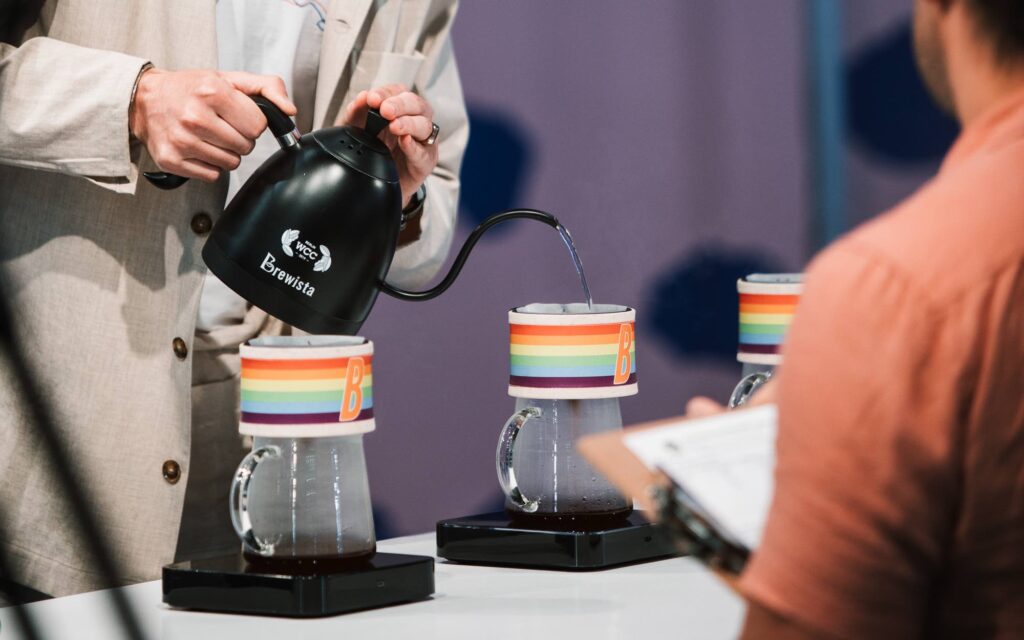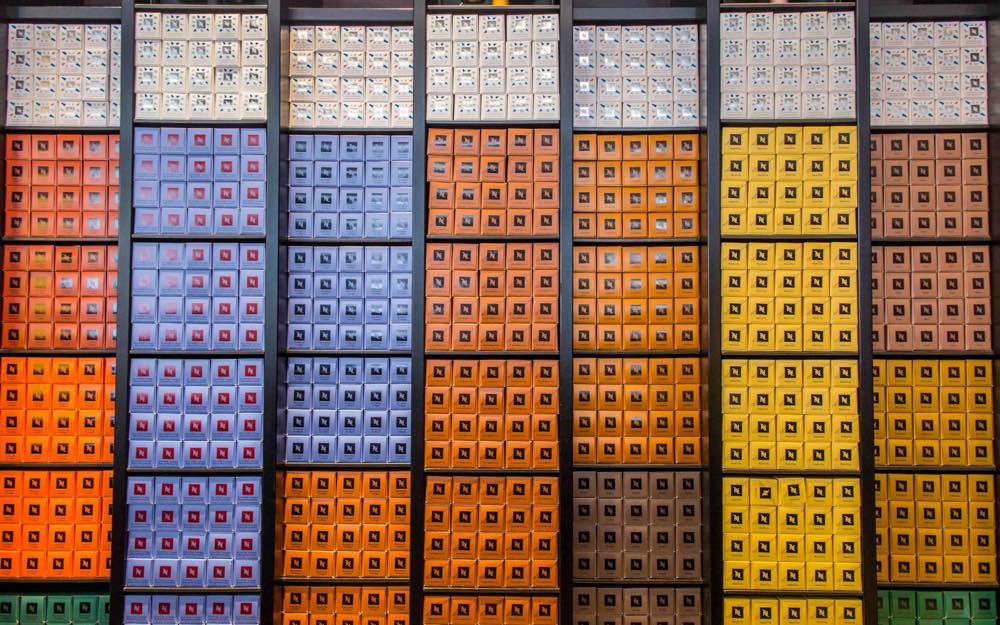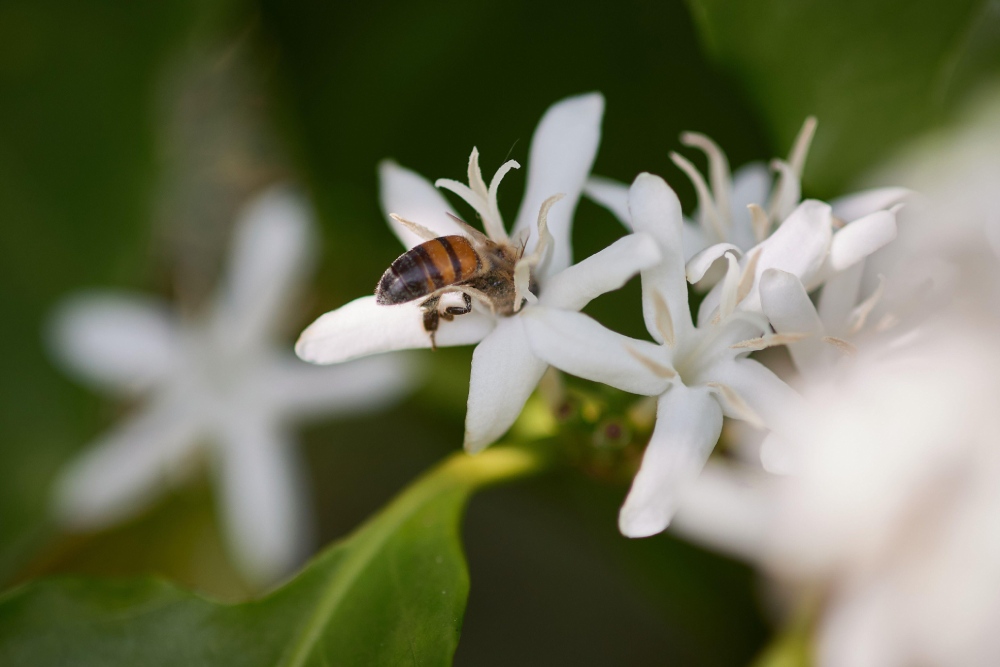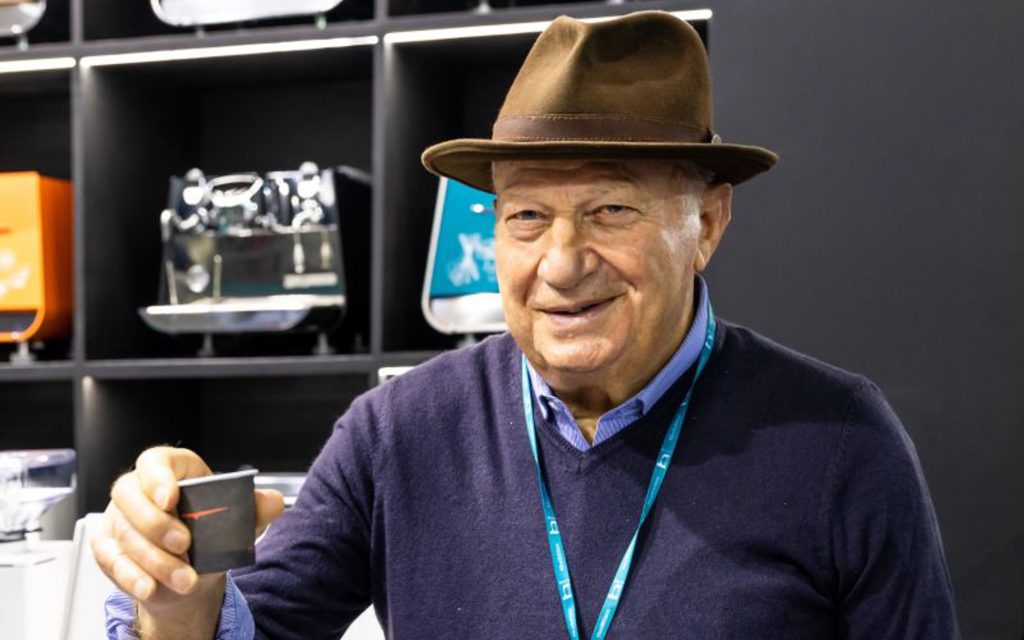Nespresso’s AAA Sustainable Quality Program turns 20
Nespresso celebrates 20 years of the AAA Program, a coffee sourcing initiative designed to ensure the continued supply of high-quality coffee while improving the livelihoods of farmers and protecting the environment.
Two decades ago, coffee giant Nespresso realised the long-term supply of high-quality coffee was under threat due to climate change. The company decided to act, building a coffee sourcing program to protect coffee farmers and the future of coffee production.
The result was the Nespresso AAA Sustainable Quality Program, created in partnership with the Rainforest Alliance. Its founding principle was to build strong and direct relationships with coffee farmers, protect the nature and life in landscapes where coffee is grown, and strengthen communities’ environmental and economic resilience.
“The AAA Program is a unique coffee sourcing project which isn’t about buying coffee on the commodity market or buying external certification — it’s about acting on sustainability directly in our business approach, supporting coffee farmers on the ground, and helping to make coffee farming environmentally, socially, and economically sustainable,” says Nespresso Global Head of Sustainability Jérôme Perez.
“The regions from which we source coffee are particularly vulnerable to the impacts of climate change. Extreme temperature fluctuations, heavy rainfall and droughts pose serious risks to coffee crops. Through the AAA Program, we are supporting farmers to reduce the environmental impact of coffee farming, and the impact of climate change on farmers in order to preserve their farm. To be a part of this important journey makes me very proud.”
The overall goal of the Nespresso AAA Program is to work with farms and coffee farmers on a process of continuous improvement. This helps Nespresso to ensure it’s meeting the criteria laid out in the program.
“To set out these criteria and guidelines, we established the Tool for Assessment of Sustainable Quality, or TASQ. It’s inspired by international standards such as the Sustainable Agricultural Network (SAN), and Fairtrade, from which we integrated our own additional criteria. All performance results are then verified by the Rainforest Alliance and SAN partners,” Perez says.
“We are now in the third iteration of the TASQ, solidifying its position as an independent standard. The new iteration brings additional knowledge to regenerative agriculture, providing producers with adequate guidance in this respect.”
Twenty years of care
In 2023, the AAA Program celebrated its 20th anniversary. Perez says it’s a program that has grown from 300 farmers in Costa Rica in 2003 to more than 150,000 farmers in 18 countries, creating a lasting legacy for thousands of farming families and protecting the future of Nespresso coffee.
“The AAA Program provides technical training that empowers the farmers to improve the quality of their coffee and increase the yield of their harvest. Nespresso then rewards the investment farmers make in sustainable quality by paying a premium price for their beans. Since 2014, we have invested more than CHF$363 million (about US$416 million) in training, technical assistance, and farmer premiums, as well as making structural investments in farming communities to improve the social, environmental, and economic performance of coffee farms. In 2020, Flocert (Fairtrade’s global independent certification body) verified that 95 per cent of all the global coffee we bought in 2019 met the Fairtrade Minimum Price,” he says.
AAA Program producer Nyota Mukuza and agronomist Judith Zawadi from the Democratic Republic of Congo have successfully raised the quality and production of coffee on the farm. With the help of Zawadi, Mukuza is implementing regenerative practices and breaking down gender barriers.
“I have adopted a number of best practices including pruning and rejuvenating the coffee trees, applying organic compost, and shown good shade management by planting 150 native trees and 50 timber trees. I have also diversified with initiatives to complement coffee production such as raising goats for manure and intercropping with bananas, beans and soybeans,” says Mukuza.
Perez says a distinctive aspect of this program is that Nespresso maintains long-standing relationships that provide the security of a reliable, long-term partner. It allows Nespresso to build mutual trust and enduring partnerships. He says through initiatives such as agroforestry, crop insurance, and retirement savings schemes, Nespresso’s AAA Program helps farmers to safeguard their land and livelihood for the future.
“I have had the privilege of being here from the get-go — more than 20 years ago. What I find amazing, but also emotional, is that by buying from the same farmers year after year, new generations can also envision a prosperous future in coffee farming,” Perez says.
“It is incredibly rewarding to see a AAA farm passed onto the adult children or grandchildren of a coffee farmer who was part of the program since the beginning.”
The Centre for Regional Coffee and Business Studies conducted a study in 2013 called ‘Monitoring & Evaluation Study, Nespresso AAA Sustainable Quality Program Colombia’, based on 1000 Colombian farmers, found that the farmers participating in the AAA Program had income levels 46 per cent higher than non-AAA farmers.
“Although this study was limited to Colombia, we believe it is strong indicator of how the AAA Program is helping to improve farmer welfare in all the countries where we work,” Perez says.
“Since 2014 we have also, together with our partners, planted over seven million trees in AAA landscapes. By 2030, we have an ambition to reach net zero in AAA green coffee production through the acceleration of regenerative agricultural practices and carbon removals.”
By using organic fertiliser and creating compost from farm material in Costa Rica, AAA Program farmer Alejandra Quesada and agronomist Melissa Chacon are transforming their environment with nature-based solutions and are already yielding results. In the past three years, 2000 trees have been planted with a focus on timber and fruit bearing varieties for animals to feed on.
With the intention to rehouse the native bird species, Quesada and Chacon estimate that this initiative has already seen an 80 per cent increase in animals and birds on the farm.
“It was scary taking over the farm from my father, but we did the handover together and I have learned to do everything. I do it all myself, from pruning the coffee trees and cutting the grass to planting new varieties of trees,” says Quesada.
From sustaining to regenerating
Extreme temperature fluctuations, heavy rainfall, and droughts pose serious risks to coffee crops, while weather shocks can exacerbate pests and disease. And if the coffee is exposed to risks, so are the farmers.
According to Nespresso, this demands urgent action. It’s why the company is working together with Rainforest Alliance and partner farmers on a transition to regenerative agriculture.
Perez says this vision is based on harnessing nature and its diversity as an asset.
“Through the AAA Program, coffee farmers will make a positive contribution to the natural ecosystem by adopting regenerative farming practices and producing in ways that restore and protect biodiversity in and around their farms – embracing the power of nature to heal and restore itself,” he says.
“Regenerative agriculture delivers benefits to farmers, environment, and society by addressing the challenges of climate change, biodiversity loss, and community resilience. Nespresso sees a tremendous opportunity to transition the whole coffee industry to a model that supports ecosystem services, sequesters carbon, and provides diversified sources of income to farmers.”
After taking over Fazenda Três Meninas in Brazil, AAA Program farmers Ana Paula Curiacos Urtado and Marcelo Urtado quickly recognised that it was being run in a conventional way and was highly dependent on chemical fertilisation. With their respective backgrounds in agronomy and animal science, they understood the potential for the farm to work in harmony with nature.
“We knew we had to do something different. The goal was to increase biodiversity and improve resilience. We started with techniques such as cover crops, using different crops in the middle of the coffee plants, as well as planting different varieties of trees,” says Urtado.
“Now we can use 100 per cent biological products and the cover crops act as our ‘fertiliser factory’, getting nitrogen from the atmosphere to put in the soil. In the beginning people called us crazy… now we don’t have time to receive everybody that wants to come to the farm.”
A force for good
Nespresso’s Perez says it’s important to recognise that this transition to regenerative agriculture requires collaborations. He says the AAA Program provides a framework to support farmers and reward them for their efforts in sustainable quality and the implementation of regenerative agriculture practices.
“We also consulted with our long-standing partner, the Rainforest Alliance, to develop the Rainforest Alliance Regenerative Coffee Scorecard. The idea is that it provides a measurement framework for the adoption of regenerative agriculture practices at farm level for the coffee industry. The scorecard is the first to set the ‘regenerative standard’ for coffee, identifying the thresholds for bronze-, silver-, and gold-level performances. The scorecard assesses soil, biodiversity, water, crop resiliency, and livelihoods,” says Perez.
Perez continues that the AAA Program is a reflection of Nespresso’s core belief: the coffee sector has the potential to be a powerful force for good in the world.
“This deep and long-term commitment helped us earn B Corp status, putting Nespresso within a community of companies that meet high standards of social and environmental sustainability,” he says.
“The transition to regenerative agriculture is a continuation of the sustainable agriculture approach that we’ve been promoting since we created the Nespresso AAA Program. We want to build on this to encourage profitable, sustainable coffee growing that respectfully uses the best of what nature provides, and to inspire widespread change across the global food system.”
This article was first published in the March/April 2024 edition of Global Coffee Report. Read more HERE.
The post Nespresso’s AAA Sustainable Quality Program turns 20 appeared first on Global Coffee Report.





Responses